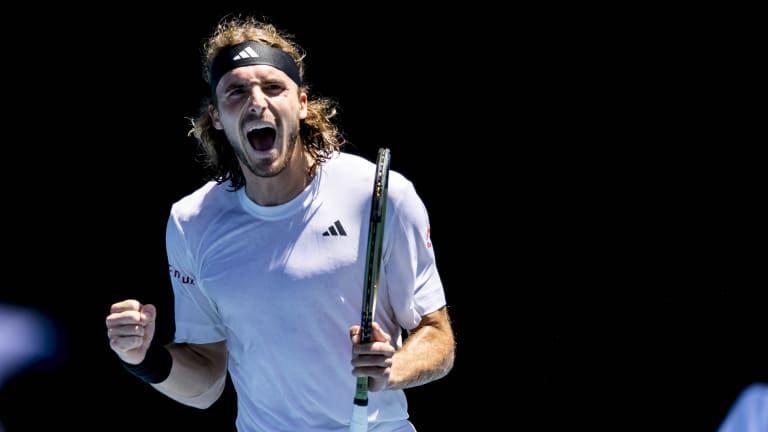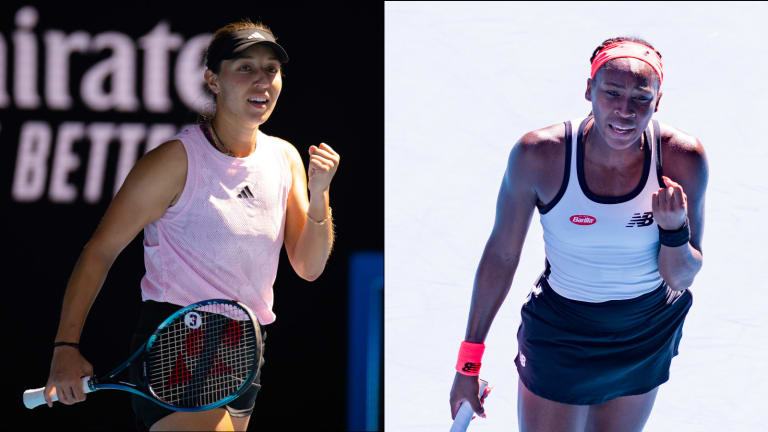Australian Open
Three to See, Day 8: Tsitsipas vs. Sinner; Gauff vs. Ostapenko; Pegula vs. Krejcikova
By Jan 21, 2023Australian Open
Simona Halep, Cruz Hewitt given Australian Open qualifying wild cards
By Dec 18, 2024Australian Open
2014 champion Stan Wawrinka leads initial wild cards for 2025 Australian Open
By Dec 13, 2024Australian Open
Nick Kyrgios enters Australian Open for his first Grand Slam tournament in over two years
By Dec 06, 2024Australian Open
Jannik Sinner does it his way: He chose tennis over skiing and selected his new coaching team
By Jan 31, 2024Australian Open
The State of the ATP: What we learned from the 2024 Australian Open
By Jan 30, 2024Australian Open
'Grandissimo': Italian Premier Giorgia Meloni welcomes home Australian Open champion Jannik Sinner
By Jan 30, 2024Australian Open
The State of the WTA: What we learned from the 2024 Australian Open
By Jan 30, 2024Australian Open
The doubles mastery, and radical fun, of Hsieh Su-Wei
By Jan 29, 2024Australian Open
Pope Francis congratulates Italy after tennis player Jannik Sinner wins the Australian Open
By Jan 29, 2024Australian Open
Three to See, Day 8: Tsitsipas vs. Sinner; Gauff vs. Ostapenko; Pegula vs. Krejcikova
The fourth round is underway. Here are three must-see matches.
Published Jan 21, 2023
Advertising
Advertising

Tsitsipas took it to Sinner last year by using his wider range of shots and superior court coverage.
© Icon Sportswire via Getty Images
Advertising

These doubles partners have singles glory in sight.